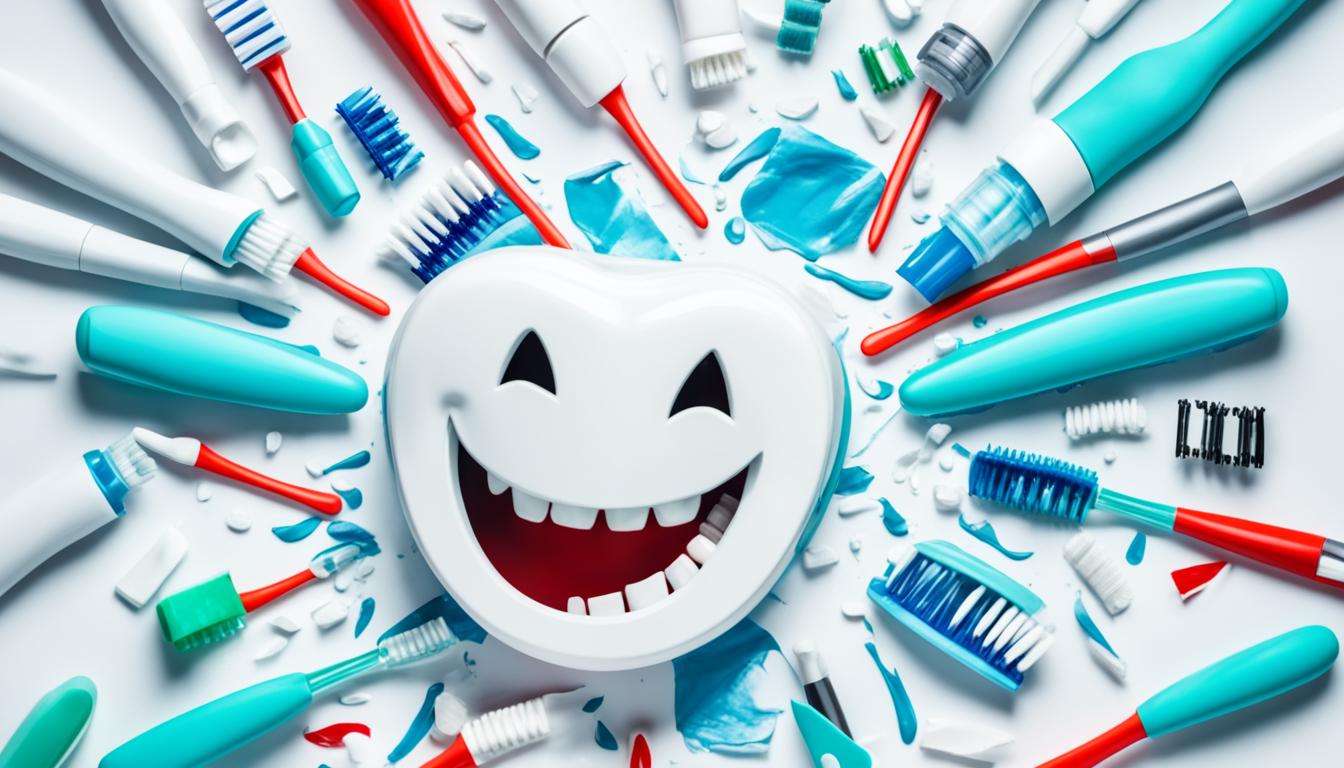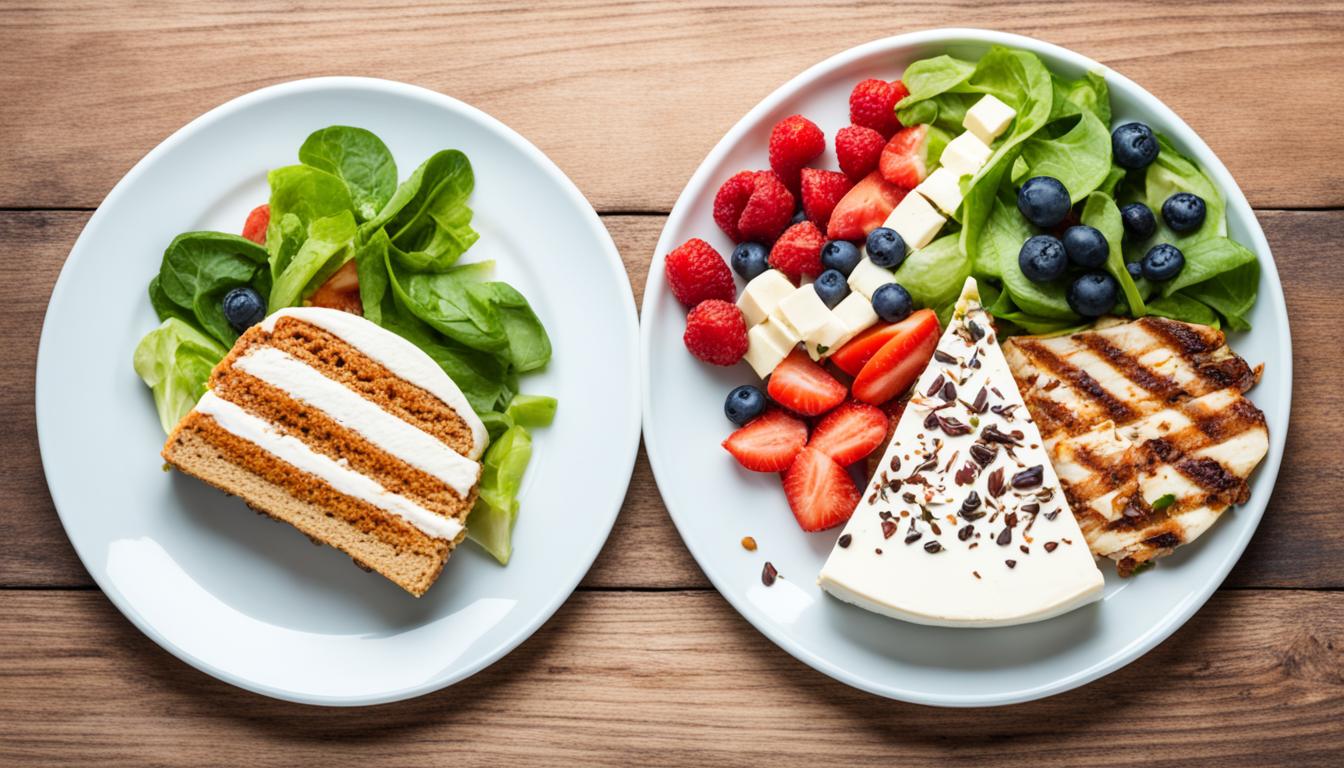In today’s world, where information is abundant, health myths debunked can significantly shape how you perceive your own health and wellness. Many individuals navigate daily decisions influenced by health misconceptions that may not hold any grounding in scientific facts. This article aims to dismantle the most pervasive common health myths by bringing to light the truth, supported by evidence-based research and expert insights. Being informed with accurate knowledge is crucial as we strive to debunk these debunked health myths that affect our choices.
Key Takeaways
- Common health myths can lead to misguided health decisions.
- Debunking these myths requires credible and evidence-based information.
- Many misconceptions stem from misinformation shared by friends and relatives.
- Reliable sources for health information include academic and governmental websites.
- Understanding the truth behind these myths empowers better health choices.
Understanding Health Myths and Their Impact
Health myths significantly shape your understanding of well-being and can influence daily choices. Many of these health misconceptions stem from misinformation and lack of scientific evidence, leading to actions that may be harmful. For example, the belief that drinking eight glasses of water daily applies universally ignores the need for personalized hydration based on individual activity levels and environmental factors. The propagation of such myths has established a culture where people prioritize unverified beliefs over facts.
The effects of myths on health can lead to negative practices. Holding in a sneeze might seem harmless, yet it can result in serious injuries like burst blood vessels. On the other hand, the infamous five-second rule varies in validity, depending on what food is involved and the surface it lands on. Understanding these nuances is crucial for fostering accurate health beliefs.
Being aware of the misinformation surrounding health can empower you to make informed decisions. For example, the notion that cracking your knuckles leads to arthritis has no scientific basis. Similarly, believing that pulling out a grey hair causes multiple ones to grow back is simply not true. These minor health myths highlight the need for discernment in what information you accept as fact. Taking the time to investigate and learn from reliable sources, such as debunking health myths, can help in dismantling these prevalent misconceptions.
Through awareness and education, you can combat the negative impacts of misleading beliefs. Understanding the real facts behind these popular health misconceptions can lead to better health choices, positively influencing your life and others around you.
Common Health Misconceptions Explained
Understanding common health misconceptions can significantly affect your daily choices. Many individuals often grapple with beliefs rooted in misunderstanding or poor information. Evaluating the basis of health myths reveals that most stem from a mix of anecdotal experiences, cultural narratives, and exaggerated fears. This sets the stage for misinformation to take hold.
The Basis of Many Myths
The basis of health myths frequently relies on scientific misunderstandings. For example, some maintain that public toilet seats harbor diseases, despite research indicating otherwise. Many people are unaware that the likelihood of contracting an illness from such surfaces is minimal compared to areas like bathroom handles and floors. Misinterpretations like these contribute to persistent common health misconceptions.
Where Misconceptions Come From
The sources of misinformation play a crucial role in shaping health beliefs. Many misconceptions arise from stories told within communities or spread through social media platforms with little fact-checking. Neglecting to verify information can lead to widespread acceptance of these myths. Understanding where these ideas originate empowers you to differentiate between facts and misunderstandings, ultimately fostering a healthier perspective.

Health Myths Debunked: The Truth Behind Dental Health
In the realm of dental care, many dental health myths can significantly hinder your oral hygiene. Misunderstandings persist regarding brushing and flossing, often leading to ineffective practices and long-term consequences for your health. It’s essential to recognize these dental hygiene misconceptions to maintain optimal oral health.
Brushing Harder Doesn’t Mean Cleaner Teeth
A common belief is that applying more pressure while brushing results in cleaner teeth. This notion is a prime example of oral care myths that can be damaging. Brushing too hard can wear down enamel, leading to sensitivity and discoloration. Instead, it’s advisable to use a soft-bristled toothbrush and gentle motions. The American Dental Association suggests brushing twice a day, emphasizing technique over force for effective plaque removal.
Flossing: Essential for Oral Hygiene
Another widespread misconception is that if your gums bleed while flossing, you should stop. This idea undermines the importance of flossing in reducing gum inflammation. Flossing plays a crucial role in maintaining periodontal health, especially in preventing gum disease. Recognizing the necessity of this practice can help you combat dental hygiene misconceptions and promote a healthier mouth. Regularly incorporating flossing into your routine can yield benefits beyond what brushing alone can achieve.

The Myths of Eating and Nutrition
Many nutrition myths and eating habits misconceptions mislead people in their quest for a healthy lifestyle. By understanding these misconceptions, you can make informed choices, avoiding misinformation. This empowers you to make decisions based on solid scientific evidence.
Myth: Carbs Are Bad for You
The notion that all carbohydrates are detrimental to health stems from a misunderstanding of their role in a balanced diet. The quality of carbs is far more important than their quantity. Whole grains, fruits, and vegetables are packed with essential nutrients and should be staples in your diet. Cutting out highly processed carbs can aid in weight loss, but many people find they regain weight after low-carb diets. This highlights the importance of finding a dietary balance.
Myth: Eating at Night Causes Weight Gain
This misconception links late-night snacking with weight gain. However, it’s not the timing of meals that’s the issue, but rather the total calories consumed. Snacking on healthy options like Greek yogurt or nuts can help control overeating during meals. It can also be part of a balanced diet, regardless of the time. Adopting a mindful approach to snacking can help dispel myths surrounding nighttime eating habits.

Myth-Busting Popular Diet Fads
Diet trends often grab headlines with promises of quick weight loss and health improvements. However, many of these claims are based on misconceptions, misleading those seeking real health gains. By debunking these diet fads, you can better understand the landscape, especially when it comes to ketosis misconceptions and detox diet facts.
Ketosis and its Misunderstandings
The ketogenic diet, aiming to induce ketosis, has become very popular. Early reports suggest it can lead to a 10-pound weight loss in just two weeks. Yet, it’s crucial to be cautious. Many see it as a universal solution, but it’s not suitable for everyone. Hormonal imbalances and certain health conditions can hinder weight loss efforts, even with a strict diet. Staying informed helps you make informed choices, avoiding the hype around ketosis.
Detox Diets: Do They Really Work?
Juice cleanses and detox diets promise a quick fix, with some celebrities claiming to have lost 14 pounds in two weeks. However, the truth is, your body can detoxify itself naturally without extreme measures. The notion that you need to “cleanse” your system is largely a myth. There’s little scientific support for detox diets, and they often don’t live up to their advertised benefits. Knowing this truth helps you evaluate these fads critically, focusing on a sustainable diet for long-term health.
Exploring Exercise Myths
The fitness world is often shrouded in misconceptions about exercise effectiveness and outcomes. Grasping these myths can lead to more effective workouts and improved health outcomes.
Weightlifting Will Make You Bulk Up
Many think weightlifting will inevitably result in excessive muscle bulk. However, this is a common fitness misconception. Gaining significant muscle mass typically requires a diet and training plan. Women, with lower testosterone levels, are unlikely to develop massive muscles solely through strength training. Such myths might prevent people from trying resistance training, which has numerous health benefits like improved metabolism and enhanced bone density.
Cardio Is the Only Way to Lose Weight
Cardio is often seen as the primary method for weight loss. It’s crucial for heart health and calorie burning. Yet, saying it’s the sole way to lose weight is incorrect. Strength training is vital for weight management and can help with fat loss and muscle retention. Balancing cardio and strength training is key for optimizing fitness goals. A mix of exercises boosts metabolism, prevents injuries, and keeps workouts engaging. For more on combining different exercises effectively, check out this resource.
The Science of Vaccines: Debunking the Doubts
Understanding the importance of vaccines is key to fighting vaccine misconceptions. The belief that vaccines lead to autism has been thoroughly debunked by science. Extensive research confirms their safety and crucial role in public health. Misinformation about vaccines hinders efforts to reach optimal vaccination rates, essential for community protection.
Myth: Vaccines Cause Autism
When debunking vaccination myths, it’s vital to acknowledge that leading health organizations have thoroughly investigated this claim. Studies from diverse sources consistently reveal no autism link with vaccines. Vaccine side effects are rare, underscoring the need for vaccination to protect both individuals and communities.
Understanding Herd Immunity
Herd immunity explained shows how high vaccination rates in a community shield those who cannot be vaccinated. This approach significantly reduces infectious disease spread, as seen with the measles vaccine’s introduction in 1963. If vaccination rates fall, outbreaks can quickly occur, highlighting the importance of maintaining high vaccination levels.
Mental Health Misunderstandings
Mental health myths can significantly hinder individuals from seeking help and support. Many believe that mental health issues show weakness. This belief leads to unnecessary stigma and shame, stopping many from getting the help they need. It’s vital to understand these myths to create a supportive environment.
Myth: Mental Health Issues Are a Sign of Weakness
Mental health challenges affect people from all walks of life, regardless of their strength or resilience. In fact, nearly 20 percent of people in the U.S. suffer from anxiety, and around 7 percent experience major depression at some point. These statistics show that mental wellness myths are not accurate. Mental health issues are common and can affect anyone.
Debunking Myths Around Therapy and Counseling
Many people think therapy is only for those in crisis, believing it’s not for everyday life challenges. However, therapy can help anyone facing daily struggles, offering tools for coping and growth. Evidence shows that over half of clients with depression and anxiety see significant improvements or full recovery. By challenging these therapy misconceptions, you open yourself to resources that can improve your mental well-being.
Health Myths Exposed: The Truth about Common Colds
Navigating the landscape of colds myths can be tricky. You may have heard various suggestions on what causes a cold or how to treat one. Understanding these common cold truths helps to clear misinformation that often plagues the public. Some claims have become widely accepted despite lacking scientific support.
Sleeping with Wet Hair Won’t Cause You to Get Sick
A prevalent notion suggests that sleeping with wet hair can lead to catching a cold. This belief has no scientific backing. In studies, volunteers exposed to cold temperatures were shown to develop a cold no more frequently than those who were kept warm. This indicates that it is the virus, specifically rhinovirus, that causes illness, rather than temperature or moisture conditions.
Chicken Soup as a Cold Remedy: Myth or Fact?
One of the most comforting home remedies associated with colds is chicken soup. While it is often thought to hold healing properties, it does not cure viral infections. Instead, chicken soup offers hydration and can help alleviate congestion, soothing irritated nasal and throat membranes. Maintaining hydration and focusing on your overall strength—rather than adhering strictly to remedy misconceptions—can aid your recovery.
Myths Surrounding Everyday Activities
Many everyday activity myths stem from outdated or misinterpreted information. Two common misconceptions are the belief that knuckle cracking causes arthritis and the notion that swimming after eating is risky. These beliefs can cause undue stress and limit daily activities.
Cracking Knuckles Leads to Arthritis
The myth that knuckle cracking misconceptions leads to arthritis is widespread. However, research reveals that the sound comes from gas bubbles forming and collapsing in the joint fluid. Studies have shown that frequent knuckle cracking does not increase arthritis risk, challenging this long-standing belief.
The Truth About Swimming After Eating
Another prevalent belief is that waiting a long time after eating is necessary before swimming. However, myths about swimming suggest this can cause cramps and other dangers. Recent studies have found no significant risk in swimming after a meal. Therefore, you can enjoy water activities without waiting excessively.
Understanding these misconceptions promotes a more relaxed approach to daily activities. You can make choices without being influenced by these myths, leading to a healthier and more enjoyable life.
The Role of Media in Spreading Health Myths
The media’s impact on how people view health issues is profound. Social media platforms can either spread vital information or perpetuate health myths. In today’s world, where information is just a click away, learning to distinguish credible health sources from false ones is crucial. Misleading information can distort your understanding of health, leading to incorrect beliefs and choices.
How Social Media Influences Health Beliefs
Social media significantly shapes health beliefs, often unnoticed. For instance, research found that falsehoods on Twitter were 70% more likely to spread than accurate information. With kids seeing about 70 media messages every day and teens spending over a third of their day on screens, it’s clear these platforms shape health perceptions. Misinformation about vaccines has been particularly harmful, causing doubt among many, including 53% of dog owners about pet vaccines.
Evaluating Sources of Health Information
It’s vital to assess the trustworthiness of health information to make informed health choices. Misinformation about COVID-19 vaccines has been costly, estimated to have cost the U.S. economy $50 million to $300 million daily. Identifying reliable health sources can help you cut through the noise. Being informed lets you distinguish fact from fiction, leading to better health decisions for everyone.
Conclusion
Debunking health myths is crucial for better health. Misinformation can greatly impact your health choices, often negatively. Understanding health facts empowers you to make informed decisions, avoid unnecessary fears, and live healthier.
This article has debunked several misconceptions, highlighting the need for accurate sources. The reliability of health information varies widely. Trustworthy sources like government and academic institutions are key for factual data. By embracing scientific knowledge, you can challenge misconceptions and promote a healthier future.
Recognizing and debunking myths not only benefits your health but also influences others. With each corrected belief, we move towards a culture valuing informed health decisions. This leads to a community focused on understanding facts and dispelling misinformation.
FAQ
What are some common health myths that people believe?
Are there any health misconceptions surrounding dental care?
Can eating at night lead to weight gain?
Are detox diets necessary for cleansing the body?
Is it true that vaccines can cause autism?
What are some misconceptions about mental health?
Does sleeping with wet hair cause colds?
What should I consider when evaluating health information from social media?
Source Links
- 10 More Common Health Myths & Misconceptions Debunked – https://www.mountelizabeth.com.sg/health-plus/article/10-health-myths-debunked
- Debunking health myths on the internet: the persuasive effect of (visual) online communication – https://www.ncbi.nlm.nih.gov/pmc/articles/PMC8766354/
- 18 Medical & Health Myths Debunked | Valleywise Health – https://valleywisehealth.org/blog/medical-myths-debunked-truth-behind-common-health-misconceptions/
- Fact-checking common health myths – https://www.commonwealthcarealliance.org/living-well-at-home/fact-checking-common-health-myths/
- 11 Health Myths Debunked – https://www.oakstreethealth.com/11-health-myths-debunked-1228852
- 10 Health Myths Debunked – https://www.webmd.com/balance/ss/slideshow-10-health-myths-debunked
- No title found – https://www.medexpress.com/blog/better-health/health-myths-debunked.html
- 13 Common Dental Myths Debunked – https://www.goldenstatedentistry.com/blog/13-common-dental-myths-debunked
- Top 10 Dental Myths Debunked: Columbus’ Guide to Oral Health Facts 2024 – https://www.greentreedentalgroup.com/articles/dental-myths
- Eight Healthy Eating Myths Debunked | Blog | Loyola Medicine – https://www.loyolamedicine.org/about-us/blog/8-healthy-eating-myths-debunked
- Debunking Common Food Myths – https://www.scripps.org/news_items/4436-9-common-food-myths-debunked
- 10 common nutrition myths debunked – https://www.mayoclinichealthsystem.org/hometown-health/speaking-of-health/10-nutrition-myths-debunked
- Fad Diets: Myths vs. Facts – https://www.templehealth.org/about/blog/fad-diets-myths-vs-facts
- 10 Nutrition Myths Experts Wish Would Die (Published 2023) – https://www.nytimes.com/2023/01/19/well/eat/nutrition-myths.html
- The Top 20 Biggest Nutrition Myths – https://www.healthline.com/nutrition/biggest-lies-of-nutrition
- Daniel Lieberman busts exercising myths – https://news.harvard.edu/gazette/story/2021/01/daniel-lieberman-busts-exercising-myths/
- 7 exercise myths debunked – https://www.mdanderson.org/publications/focused-on-health/exercise-myths.h12-1589046.html
- Vaccines and immunization: Myths and misconceptions – https://www.who.int/news-room/questions-and-answers/item/vaccines-and-immunization-myths-and-misconceptions
- Myths vs. Facts: Making Sense of COVID-19 Vaccine Misinformation – https://www.bu.edu/articles/2021/myths-vs-facts-covid-19-vaccine/
- Debunking Common Myths About Mental Health – https://www.lyrahealth.com/blog/misconceptions-about-mental-illness/
- Busted: 7 myths about mental health – https://www.unicef.org/parenting/health/busted-7-myths-about-mental-health
- Myth Buster: Cracking the Case on Colds – https://www.urmc.rochester.edu/news/publications/health-matters/myth-masher-cracking-the-case-on-colds
- Medical myth busting: Separating fact from fiction about colds and flu – https://www.fredhutch.org/en/news/center-news/2015/12/separating-fact-from-fiction-about-colds-and-flu.html
- Some Myths about Nutrition & Physical Activity – NIDDK – https://www.niddk.nih.gov/health-information/weight-management/myths-nutrition-physical-activity
- No. GMOs Don’t Cause Cancer and 17 Other Health Myths You Can Stop Believing – https://www.cnet.com/health/common-health-myths-you-can-stop-believing/
- Top 5 common health myths debunked – https://www.medicalnewstoday.com/articles/321697
- POV: Health Misinformation Is Rampant on Social Media – https://www.bu.edu/articles/2024/health-misinformation-rampant-on-social-media/
- The Role of Social Media in Health Misinformation and Disinformation During the COVID-19 Pandemic: Bibliometric Analysis – https://www.ncbi.nlm.nih.gov/pmc/articles/PMC10551800/
- Seeing is believing: how media mythbusting can actually make false beliefs stronger – https://dornsife.usc.edu/news/stories/media-mythbusting-can-make-false-beliefs-stronger/
- Debunking health myths on the internet: the persuasive effect of (visual) online communication – Journal of Public Health – https://link.springer.com/article/10.1007/s10389-022-01694-3
- Old Myths, New Myths: Challenging Myths in Public Health – https://www.ncbi.nlm.nih.gov/pmc/articles/PMC4358183/
- 8 Health Myths Debunked – https://www.boston.com/culture/health/2014/06/13/8-health-myths-debunked/


